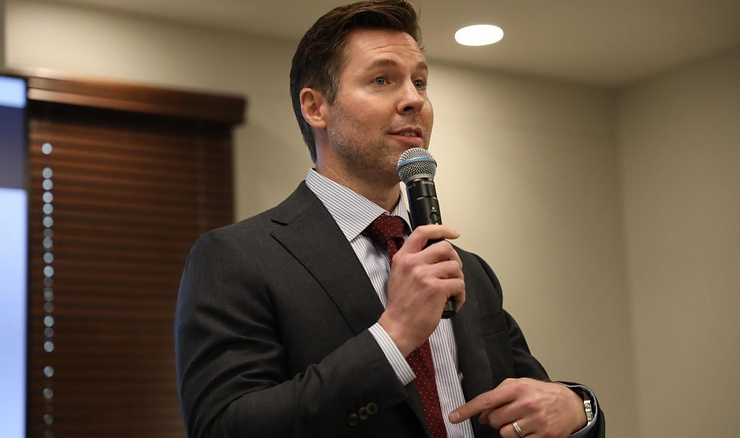The Oklahoma Legislature is on the cusp of passing legislation that will grow tomorrow’s workforce by better aligning high school graduation requirements to educational pathways that will prepare students for success in their post-high school journey, whether they are pursuing college, a skilled trade, or military service.
The Senate on Monday approved House Bill 3278, the Graduation Act of 2024, with a 35-11 vote. It previously passed in the House of Representatives with a nearly unanimous 95-2 vote. It now goes back to the House for amendments to be approved and will then proceed to Gov. Kevin Stitt’s desk for final approval.
The State Chamber of Oklahoma championed the creation of HB 3278 by working tirelessly with the business community, local school leaders, Oklahoma CareerTech, and legislators, arming them with research and policy development from the State Chamber Research Foundation. The Chamber is dedicated to helping students become career-ready, and this legislation is the result of that focus.
Rep. Rhonda Baker, R-Yukon, and Sen. Adam Pugh, R-Edmond, wrote the bill to give Oklahoma high students more say in their educational experience by making the curriculum more flexible and providing classes that will give them the specialized training which will equip them with the skills that will qualify them for the in-demand jobs in Oklahoma’s industrial sectors.
The bill’s modified graduation requirements include four math courses, including Algebra I and either Algebra II or Geometry. Students must also complete six Individualized Career and Academic Plan (ICAP) pathway units that can span a range of subjects and career paths selected by the school district’s board of education. New requirements also include a postsecondary-approved full-time CareerTech program or locally approved science-based application course to satisfy the required physical science unit.
Baker said these graduation requirement modifications will provide students training and education that will prepare them to enter the workforce upon graduation and start their career with the skills they will need to succeed.
“By creating flexibility and increasing some rigor through math, I think that ultimately our students are going to be more self-assured and better prepared for what will come their way in the future,” Baker said.
Baker, a former educator, and Pugh, a business owner, met with educators across the state to gain input on how to help students succeed.
“This [legislation] wasn’t born out of Rhonda Baker just wanting to eliminate requirements. We asked school districts if we were going to innovate and provide them maximum flexibility what would that look like by law? This [bill] was those school districts request,” Pugh said on the Senate floor. “We brought a number of education advocacy groups into meetings. We brought businesses into meetings. We brought school board members into meetings. We brought superintendents and teachers into meetings. And we said, ‘If we give you maximum flexibility to provide a host of innovative options for your students on whatever pathway they choose, what does that look like?'”
Oklahoma has a wide range of thriving industries, including oil & gas, aerospace & defense, manufacturing, healthcare, and retail. But those industries need well-trained, highly-skilled workers to fully flourish. Forty-four percent of business leaders across the state said workforce and education are the top issues Oklahoma businesses face, according to the 2023 Business Leaders poll.
HB 3278 aims to help the state’s various industries by filling their workforce needs with skilled young workers looking to launch their career.
“I think what we’re doing is we’re really connecting students with businesses that need immediate workforce,” Baker said.
House Speaker Charles McCall said the Graduation Act of 2024 will be a powerful driver of Oklahoma’s future workforce.
“We’re not only working to increase a great workforce and a larger workforce, but a lot of our education policy and the things that we’ve looked at here in the last few years is expanding education opportunities for our students to give them the best environment possible for their learning styles. And because those educational outcomes are going to be so important in competing for our own economy and also competing for jobs in the future,” McCall said. “I always defer to Rhonda Baker. We would consider her a resident expert within the space of education. I think she’s got some good ideas with those pieces of legislation.”





